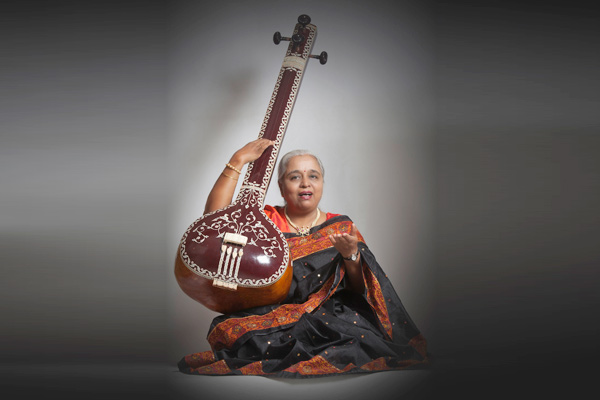For more on radio and music business news. | Click on RNMBiz

MUMBAI: The vastness of classical music can be gauged only when one of its exponents shares his/her journey, views and thoughts. Dr Alka Deo Marulkar, daughter of veteran vocalist Dr Rajabhau Deo, is one such learned artist, whose music reflects a confluence of three traditions or gharanas: Gwalior, Jaipur and Kirana.
Dr Alka Deo Marulkar has been a performing artiste for the past four decades and has witnessed several changes and transformations. Sharing her observations about the same, she said, “I have been performing since 1971 (when I was 20-years-old) throughout the country for major Music conferences. I have been noticing that aspiring young performers like me in those times were very meticulous in the selection of raagas, the scholastic approach and the in-depth delineation of raagas. We were aware that we have to carry forward the rich lineage of the Hindustani classical music.”
However, she sees a remarkable change in today’s scenario, “Due to the excessive number of concerts of youngsters, these days, the focus is only on the set matter of the ragas, which may 'entertain' the audience. Without a doubt, there are extremely talented young artists but, due to their insufficient Taalim, they are not growing in creativity as well as they are less experimental.”
The cliched wail for a long time now has been that the audience for classical music is depleting, about which she makes a valid thought, “I am slightly apprehensive about the quality of audience for the classical music, though we have, sometimes, an encouraging number of listeners in the 'Music Conferences', they may be admirers rather than analytical. Regarding 'Music concerts' the number of listeners is very disappointing for various reasons.”
While the wail is around for many years now, very few are addressing it and trying to look for a solution. Dr Alka Deo Marulkar, thinks the key for appreciating this form of music is listening attentively and with an unbiased approach, as she says, “In continuation with the previous answer I advise the novice audience to put their brain and heart in the efforts to understand classical music. There are two ways to get involved gradually in this field. First, they should listen to recorded recitals of the established and popular performers and try to get a fair idea about their style, their thought process and their consistency and second is going through a comprehensive course of ' Appreciation of Music' in various music institutions. It will help them to understand the terminologies and by and large aesthetics of music. Basically, the first-ever requirement for appreciating classical music is 'Listening Attentively' with an unbiased and impartial approach. One may be an ardent admirer of a particular performer but should also be liberal to others.”
For the audience to come and appreciate music, the coming generation has to be competent too, and Dr Alka Deo Marulkar, an ardent guru herself, is taking relentless efforts to groom her disciples accordingly. Continuing, she says, “I have been incessantly advising my young students to imbibe all the best qualities of Gharanas, which I have been representing- Gwalior, Kirana and Jaipur, so that they have an extensive and aesthetic orientation for individual Ragas. Adding to this, they must establish a good balance between ‘Shastra’, ‘parampara’ and ‘Srujan’ (established norms, tradition and creativity). I also insist that they should pursue this art with 'Committed Professionalism'.”
Today, she performs in Mumbai at the Godrej Little Theatre, NCPA, presenting choicest of late evening melodies and showcasing unadulterated Khayal vocalism, “My plan to perform at NCPA, today, includes Marwa/ Poorvi, Tilak Kamod/ Yaman. One thumri in Mishra Pilu and Bhairavi thumri.”
When: 4 October 2018
Where: Godrej Little Theatre, NCPA
Time: 6.30 pm onwards
Tickets: Rs. 135 (Members) and Rs.150 (Non-members)